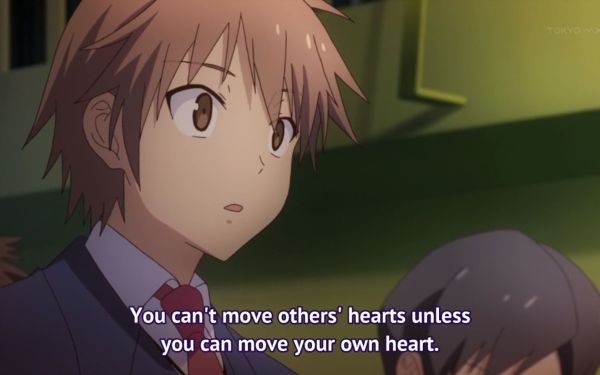
“You can’t move others’ hearts unless you can move your own heart.” Today let us look at the story of three wise men in the East, who each sought to move his own heart and ended up changing the fate of civilization for thousands of years.
(This is a continuation of a series about the Human Operating System version 3, or the New Mind which must replace the mind that is common today. Today we look at the Far East.)
New Age people here in the West find the Eastern concept of reincarnation comforting: Even if we have to leave this world, we’ll be back after a while. But for the original owners of these religions, the concept of reincarnation was a very disturbing thought. It was like a prison in which they were trapped. Even if they did good deeds and were rewarded with a good rebirth, it was not a final solution. They had to keep running just to stay in place. There was no escape from the endless cycle, millions of years of temptation, separation and loss, the pain of birth and the pain of death, over and over for all time. Unless they could somehow reach Liberation. Salvation for them was not to live forever, but to cease living forever.
The Buddha became popular because people believed he had found the answer to ending this eternal cycle of life and death. In East Asia, many revere him or even worship him as a god. But if we look at it from a safe distance, his teachings are not a promise of Salvation after you die. No. This Liberation, the Nirvana (or Nibbana, in Pali) is supposed to happen in this life. If you do not reach Nirvana while alive, you’ll have to enter the ring again. In this sense, Buddhism is not a “faith”: It is experiential, and more of a science. There are methods, and peer review, and you are supposed to make observations. You can’t close your eyes and wish that you’ll get to Nirvana someday. You have to listen to the teachings, temper your desires, restrain your anger, overcome your fear, practice meditation and eventually reach the state of mind that is Nirvana.
(In later times, many of the Buddha’s followers have taken up beliefs and practices that – at least from a distance – look a lot like closing your eyes and wishing to go to Nirvana someday. I can certainly understand this, but that was hardly how it began.)
If we go even further East to the homeland of Confucius and Lao-Tzu, they seem to have very little interest in the afterlife at all. Confucius certainly recommends venerating your dead ancestors, but I get the impression that this is necessary for your own sake rather than for theirs. To accumulate virtue and improve your soul while alive, this is itself the greatest goal. It is not something you do in order to get bonus points from gods. Indeed, I get the impression that the Sages would reject anyone who came to them with such an underhanded plan. To become a Noble Person, or in the most extreme case a Sage, this is the uttermost goal of earthly life.
The goal of your life must be reached while alive, and the earlier in life, the better. Nor is it a dreamy ecstasy – although ecstasy may happen earlier – but a state of mental clarity, of harmony and of being useful. The Sage is someone who can lead people in a natural way, by means of his example as much as his advice. There is no search for good feelings; if there is happiness, it is in the harmony with our purpose and in the good of many. It is not a life that would appeal much to an egotist, even had such a person been able to reach it.
(This hasn’t stopped later Daoists from fervently chasing after physical immortality, or at least extreme longevity. Belief in Immortals is rampant in folk Daoism, and a number of rituals are in circulation that are supposed to help you towards achieving this honor. I can certainly sympathize with that, but that was hardly what was intended.)
Confucius sums up his own life, early in part 2 of the Analects: “At fifteen, I had my mind bent on learning. At thirty, I stood firm. At forty, I had no doubts. At fifty, I knew the decrees of Heaven. At sixty, my ear was an obedient organ for the reception of truth. At seventy, I could follow what my heart desired, without transgressing what was right.” It was this latter stage which was the culmination of his progress, and which is very hard to objectively achieve. You may think what you do is right, of course, but you could simply be morally stunted. But Confucius was not simply some guy who thought highly of himself. He says himself that he did not consider it a loss if no one had heard of him. He was to live only a couple more years after he was seventy, but he changed the fate of the world’s largest empire and is revered even today.
I believe that all these three men – the Buddha, Lao-Tzu and Confucius – were examples of the Human Operating System version 3, where the center of the personality is no longer in the ego or the body-mind. There have been others since, and quite likely before as well, but these are well known and their words are clear and luminous. If you want to hear from the Sage’s own mouth, this is a good place to start.
